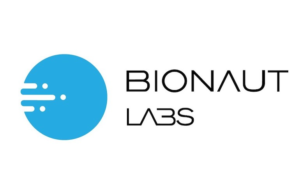 Every once in a while, researchers invoke the 1966 film Fantastic Voyage to describe efforts to use nanotechnology to deliver drugs in the body. A submarine crew shrunk to microscopic size work to damage an injured scientist’s brain in the film.
Every once in a while, researchers invoke the 1966 film Fantastic Voyage to describe efforts to use nanotechnology to deliver drugs in the body. A submarine crew shrunk to microscopic size work to damage an injured scientist’s brain in the film.
Now, the company Bionaut Labs (Los Angeles) has emerged from stealth mode to describe its plans to use tiny remote-controlled robots to deliver biologics, nucleic acids and small molecules to targeted regions in the brain. “
“It’s the Fantastic Voyage in real life,” reads a press release announcing the launch of the company, which has won $20 million in funding led by Khosla Ventures.
Bionaut Labs plans to use the funding to test its technology on glioma, a tumor of the nervous system, and explore the potential of its technology for Huntington’s disease, a progressive brain disorder.
The company’s technology could “transform the way the biopharmaceutical industry develops treatments, allowing us to engineer the therapeutic index for improved efficacy and better safety,” said Michael Shpigelmacher, the firm’s CEO, in a statement.
The company can customize the Bionaut technology with precise geometries and surface characteristics to target specific applications. Smaller than one millimeter in size, they can be steered using a magnetic controller to deliver drugs at a precise location.
One barrier that has vexed researchers working to treat brain cancer and other conditions is the blood-brain barrier, which safeguards the brain from foreign materials. “The brain is uniquely designed to protect itself from external factors,” said Dr. Santosh Kesari, director of neuro-oncology at St. John’s Cancer Institute, in a statement. “This makes medical intervention in CNS extremely challenging,’ Kesari added. Kesari is a member of Bionaut Lab’s Advisory Board.
The company has tested its technology in a large-animal in vivo model.
.

